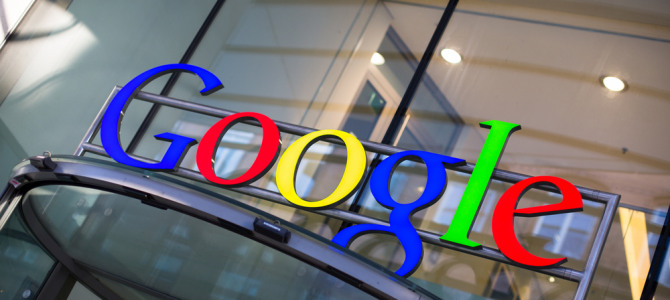
A recent quip from Fox News host Tucker Carlson showcases a troubling — and growing — undercurrent of angst between the GOP and America’s tech giants: Twitter, Facebook, and Google.
“I used to be a libertarian until Google,” he said in a segment that included a discussion with Sen. Mike Lee (R-UT) in which he argued — incredibly — that Google and other online content providers constitute as great a threat to freedom as the Federal government.
The sentiment is a bit of a head-scratcher coming from a prominent voice on the Right, and was received as such by Lee, who reminded Carlson that Google can’t send a SWAT team to raid your home. But it’s indicative of the rise of authoritarian thought in the GOP, specifically with regard to the tech industry.
I single out Republicans because, well, we already expect such things from Democrats. It’s not news that the Left favors censorship, so-called safe spaces, and suing opponents into bankruptcy with their brand of “bake the cake” cultural fascism.
But as political power lurched right in 2016, so did the will to wield it against political adversaries. President Trump’s fire-with-fire style has enticed many conservatives to accept the ideological presuppositions of the Left when it comes to big business and big government — and nowhere is that more apparent than in the GOP’s ongoing feud with America’s tech giants.
It’s no secret that America’s largest tech companies are full of lockstep liberals. James Damore’s unexpectedly controversial memo within Google — and subsequent termination — may have been the most high-profile example of tech’s ideological groupthink, but it’s far from an isolated incident.
The Obama White House was a revolving door for Google staffers, and the president himself maintained a cozy relationship with young Facebook tycoon-turned-political-activist Mark Zuckerberg. The Obama administration alums have remained engaged in tech, and as recently as last year were still pouring cash into politically-targeted tech startups.
It’s a closed circuit the Right has long tried to plug into, with little success. Attempts by conservative groups to harness social networks, even when generally effective, have frequently been hampered by opposition, demonetization, and often downright censorship by left-leaning tech giants. And they’re getting tired of it.
Pro-life group Live Action has seen its advertising rejected by Twitter for over a year, eventually indicating the offensive content was ultrasound images just like those shared by thousands of expecting parents, and calls to end government funding of Planned Parenthood. And there are plenty more examples.
Google instituted a horribly biased fact-check feature that almost exclusively targeted right-leaning sites for scrutiny. After its slanted nature and some high-profile inaccuracies were exposed, public backlash caused Google to remove the feature.
The constant uphill battle against big tech, coupled with some newfound courage in the face of a solid-red federal power structure, has positioned the right for open war with Silicon Valley — and the first shots have already been fired.
Former White House advisor and Breitbart chief Steve Bannon has openly called for the government to regulate Google and Facebook as public utilities. Doug Mainwaring at LifeSiteNews wrote an article last year titled “Google is squashing free speech, and it’s time we did something about it.” Daily Wire editor-in-chief Ben Shapiro advocates a “mutually assured destruction” approach to leftist censorship, though he does (admirably) limit the scope of that destruction to free market decision-making.
But even the fact that Shapiro has to remind the right to use the market to its advantage betrays the fact that conservatives have largely given up on the market approach and are ready to wield the cudgel of government against their opponents after eight years of being smacked by an Obama administration that often did the same. It’s a desperate measure, and one driven by a disappointing reality: the Left is beating us at our own game.
Mozilla CEO Brandon Eich wasn’t removed by a court. Democrats didn’t win a landslide election to repeal Indiana’s controversial religious freedom bill. Ditto North Carolina’s bathroom bill.
In each of these instances, liberals leveraged the free market — not government — against their opponents, and the Right backed down. Market warfare used to be the wheelhouse of cultural conservatives, whose boycotts once brought giants like K-Mart to their knees. But the culture war is now one of demographic attrition, and the allure of the Ring of Power has only grown with Republican electoral success.
Part of the drive comes from the higher average age of Republican Party activists, who were outrun by the Obama tech machine and are now willing to take the foul rather than give up the easy dunk. Another factor is plain cynicism. As liberals have gained the upper hand in the culture war, there’s increasing reason for conservatives to hit the panic button now, before the electoral winds change in favor of the Democrats.
But the cost of the GOP’s tech jihad could be steep. Advocating government control of leftists tech giants not only abdicates the moral high ground to the Left, but also establishes an incredibly dangerous precedent for future (read: Oprah) presidents to effectively socialize any big business they consider a political threat.
It also validates some of the very worst presuppositions of the Left. It assumes that businesses are inherently exploitative, and must be regulated by a benevolent government. It posits that public utilities are more accountable and less dangerous than private businesses. It accepts that positive cultural change must be driven from the top, rather than built from the bottom.
Each of these positions would be a major philosophical retreat for conservatives. But beyond ideological faults and the sure-to-follow charges of hypocrisy, there’s another, more practical problem: It’s the political equivalent of invading Russia. A full 69 million Americans use Twitter, 180 million use YouTube, and as of three years ago, nearly 60 percent of Americans had Facebook accounts. About 67 percent of Americans get at least some of their news from social media, which presents a real messaging problem for anyone intent on challenging the providers themselves.
As surprising as the call to socialize tech giants might be, equally surprising is the total lack of initiative toward a better — and more traditionally conservative — solution: competition. Conservative attempts to create competing social media platforms have thus far failed to gather any steam, in part because they’re doing the competition thing all wrong.
As Cody Brown, founder of the conservative social media platform Codias explained to Ian Tuttle at National Review, the goal wasn’t to compete so much as to weaponize: “Ultimately, says Brown, the goal is simple: ‘training and equipping conservatives for political warfare on the federal, state, and local level. That is the reason for our existence. We’re not a ‘technology’ company. We’re not a ‘software’ company. We’re a conservative company that exists to train and equip conservatives for political warfare.”
There’s certainly a place for better political organization tools, but that’s never going to dethrone the social media kings, for one simple reason: It’s useless to most of America.
Facebook, Twitter, and YouTube didn’t set out to advance liberal ideologies and indoctrinate the world, they set out to make something useful and valuable by connecting and empowering people. Think about it: the outcry over recent censorship and bias only exists because of an expectation of fairness by people accustomed to using social media to oppose the agenda of social media providers – a fairness social media providers aren’t morally or legally obligated to provide at all.
Facebook has been used equally by all kinds of partisan campaigns, and therefore has appeal to all sides of the political spectrum. But unlike politically-driven competitors, it also has utility to people who don’t plaster their profiles with rainbow flags or bald eagles.
The Right doesn’t need another app to train and equip conservatives, just like we don’t need more Tea Party group therapy meet-ups. We need to get back to what we do best, which is limiting government and unleashing human potential through the free market.
There’s a young generation of tech-savvy libertarians ready to challenge the Left’s stranglehold on the social space through innovation and competition, but they’re likely to be hampered by the very tactics the populist Right is currently advocating.
Transforming tech giants into utilities only deputizes them and entrenches them into the public space, and insulates them against market forces and competitive challenge. Worse yet, it doesn’t offer any protection against bias. Rather, it incorporates the government into all bias calculations, raising the specter of reimplementation of dead authoritarian policies like the Fairness Doctrine.
Fortunately, not everyone is following Bannon and Co. to war. A conservative underground thrives in Silicon Valley, and aggressive new parties are looking to tech to give them a leg up on the competition. As much as there’s a demand for counterbalance to increasingly left-leaning tech giants, there’s even more demand for platforms that connect and empower without political bent or censorship — and that’s where the real opportunity for the Right still lies.









